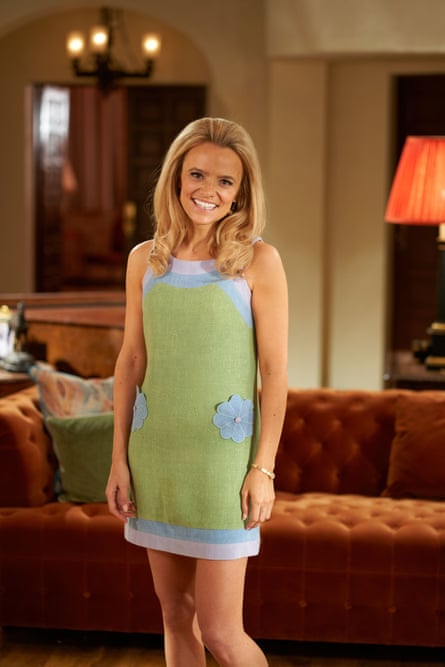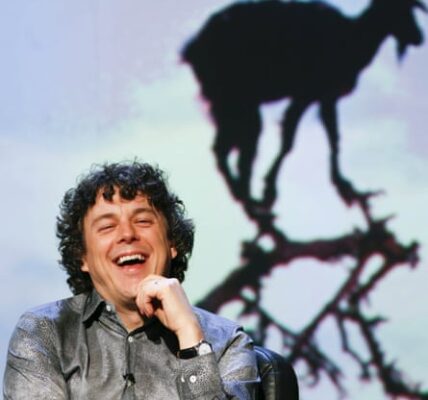So many movie stars struggle to live up to the screen persona that made them famous, but for one of the greatest leading men in Hollywood history, that contrast was unusually acute. Cary Grant was not just a name that Archie Leach adopted to sell himself as an actor; he was a character Leach played for decades on and off screen, in a futile attempt to become someone else.
Archie, a four-part emotional biography drama, follows the life of its main character through five different stages. Dainton Anderson plays the role of young Archie, growing up in Bristol during the 1910s. He faces extreme poverty, worsened by his father Elias’ cowardice and neglect. Elias, portrayed by Henry Lloyd-Hughes, is partly responsible for the death of Archie’s older brother. After the loss, Archie’s mother, Elsie Leach (played by Kara Tointon), is unable to recover and is shown in a heartbreaking scene where she is scrubbing the living room floor in dim light before suddenly breaking down in tears. This tragedy becomes a defining moment when Elias manipulates the situation and has Elsie committed to an asylum, lying to Archie that she is dead.
A teenage boy named Archie (played by Oaklee Pendergast) leaves home to join an acrobatic group and ends up in New York. He decides not to return home and grows into a young man (played by Calam Lynch) who is determined to make it as an actor. The show is not afraid to show pivotal moments in a charmingly cheesy way. Archie teaches himself how to act and even hides his Bristol accent in one night while practicing lines in his gloomy attic room. When he is on the verge of success in 1932, he is asked to change his name and chooses to become Cary Grant. He uses a Los Angeles phone book and a disinterested movie studio secretary to help him complete the necessary paperwork.
By revealing one of the most shocking backstories in cinema and completing one of its most radical transformations, the series avoids becoming an unwieldy epic by making a daring decision. The peak years of Grant’s career are skipped over: Bringing Up Baby, His Girl Friday, and The Philadelphia Story are merely portrayed through posters in a time-jumping montage. This series is not about a celebrity struggling with fame; it delves into the story of a man who cannot escape the trauma of his childhood. We join Grant in the early 1960s, where he has already starred in numerous films and gone through three divorces. Archie is partly based on the memoir of Grant’s fourth wife, Dyan Cannon, who is also credited as executive producer. Through Grant’s doomed relationship with Cannon, the show explores its entire narrative.
Ignore the newsletter advertisement.
after newsletter promotion

Cannon is Grant’s junior by 33 years and is intelligent and self-aware enough to recognize that getting involved with him would be a mistake. However, she is overcome by Grant’s charming and attractive persona that has made him a celebrity. Unfortunately, her initial instincts are accurate. Throughout their short marriage, Grant exhibits possessive, jealous, and controlling behavior, even going as far as being verbally and emotionally abusive. He constantly nitpicks and corrects Cannon’s grammar, insists on using coasters, and addresses her as if she were a child. His deep-seated issues with his mother are further complicated when she reappears, portrayed by the biting Harriet Walter.
In her portrayal of Cannon, Laura Aikman masterfully captures the delicate balance of a future star’s energy, intelligence, and naivety. Jason Isaacs, on the other hand, flawlessly embodies both the charming facade of Grant – with his smooth talking, stocky build, and air of amused disbelief – and the underlying danger that Jeff Pope’s screenplay delves into. Isaacs portrays Grant as a damaged man who is unable to be as kind as he desires, too preoccupied with compensating for his past to see what truly matters in the present. It would have been easy to sugarcoat the challenges of living with Grant, but Archie does not do so – and if there are any doubts about whose perspective we are seeing, it’s clear that if it was even half as bad as Cannon claims, it was truly terrible.
The regret for a happy life that was almost attainable is emphasized by a fifth version of Grant in the 1980s, relieving himself by openly speaking to fans during his speaking tour before he passed away. Isaacs, who is still in character, perfectly captures the soft charm of the aging Grant, and the tearful release in the ending scenes makes it evident that Grant found redemption in being a parent to his and Cannon’s daughter, Jennifer. It is a bittersweet ending for a particularly sorrowful story.
-
Archie currently airs on ITVX in the United Kingdom and will be available for streaming on BritBox in Australia starting December 14th.
Source: theguardian.com

